In Spain, Santa Claus isn’t the star of the show when the holiday season rolls around. Instead, it’s the Three Wise Men—los reyes magos—who take center stage during the winter holidays. They’re the ones who bring Spanish children their gifts the night before Three Kings Day in January.
While some Spanish families have also embraced the Santa tradition in recent years, it’s los reyes magos who are the most important. Read on to learn more about this beloved Spanish holiday tradition!
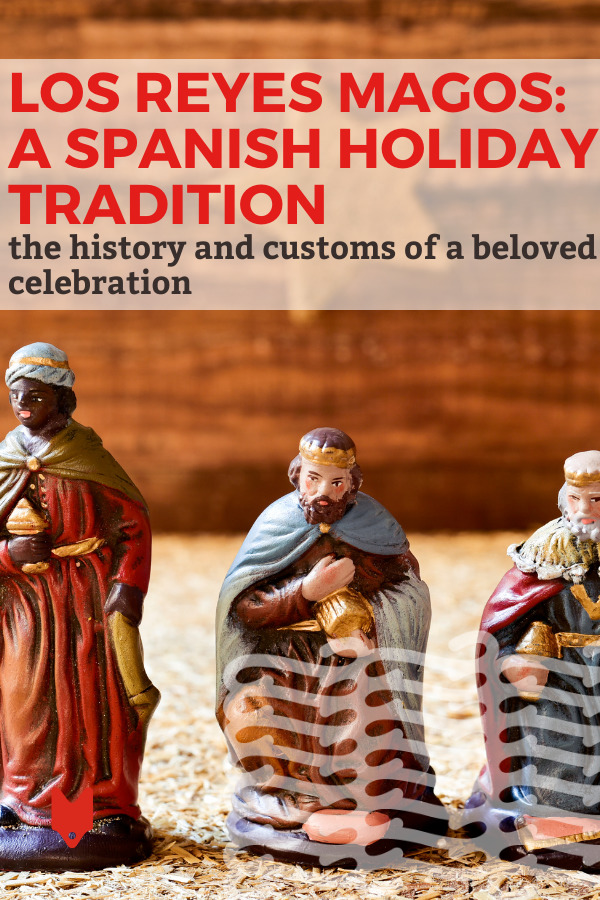
Who Are Los Reyes Magos? The Three Kings Explained
According to Christian tradition, three wise men, Melchior, Caspar, and Balthazar, visited the newborn baby Jesus shortly after his birth. They brought gifts of gold, frankincense, and myrrh.
The Three Wise Men have been honored in various European countries since the Middle Ages. When the tradition of Santa Claus bringing gifts to children on Christmas Day became popular in some countries centuries ago, Spain followed suit but used los reyes magos as the gift-bringers instead.
In recent years, some Spanish families have begun to embrace the Santa tradition as well. As a result, some children get gifts on both December 25 and January 6. However, Three Kings Day is easily the more important of the two, and the day when just about everyone in Spain will be in the gift-giving spirit.
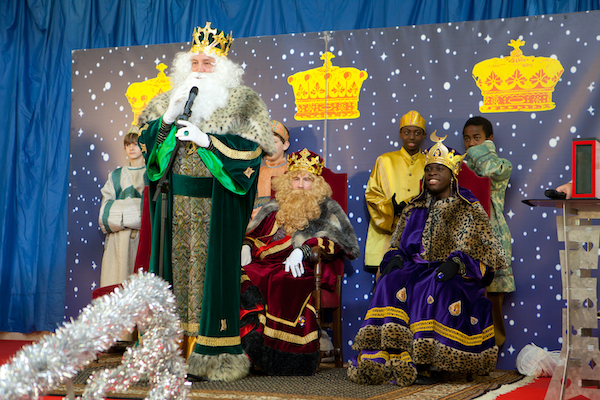
The Significance of January 6th: Celebrating Epiphany
January 5: The Three Kings Day Parade
Festivities officially start the day before the actual feast day of los reyes magos. On January 5, parades take place throughout the country to celebrate the arrival of the kings. Spanish families line the streets of their hometown to get a glimpse of the cabalgata de los reyes magos, or the Three Kings Day parade.
These parades are truly a sight to behold! Along with dancers, musicians, and puppeteers, the Kings ride on camels or elaborate floats. They throw goodies, usually candy or sweets, down to the children. Some adults even get in on the fun and will hold upside-down umbrellas to catch as much candy as possible.
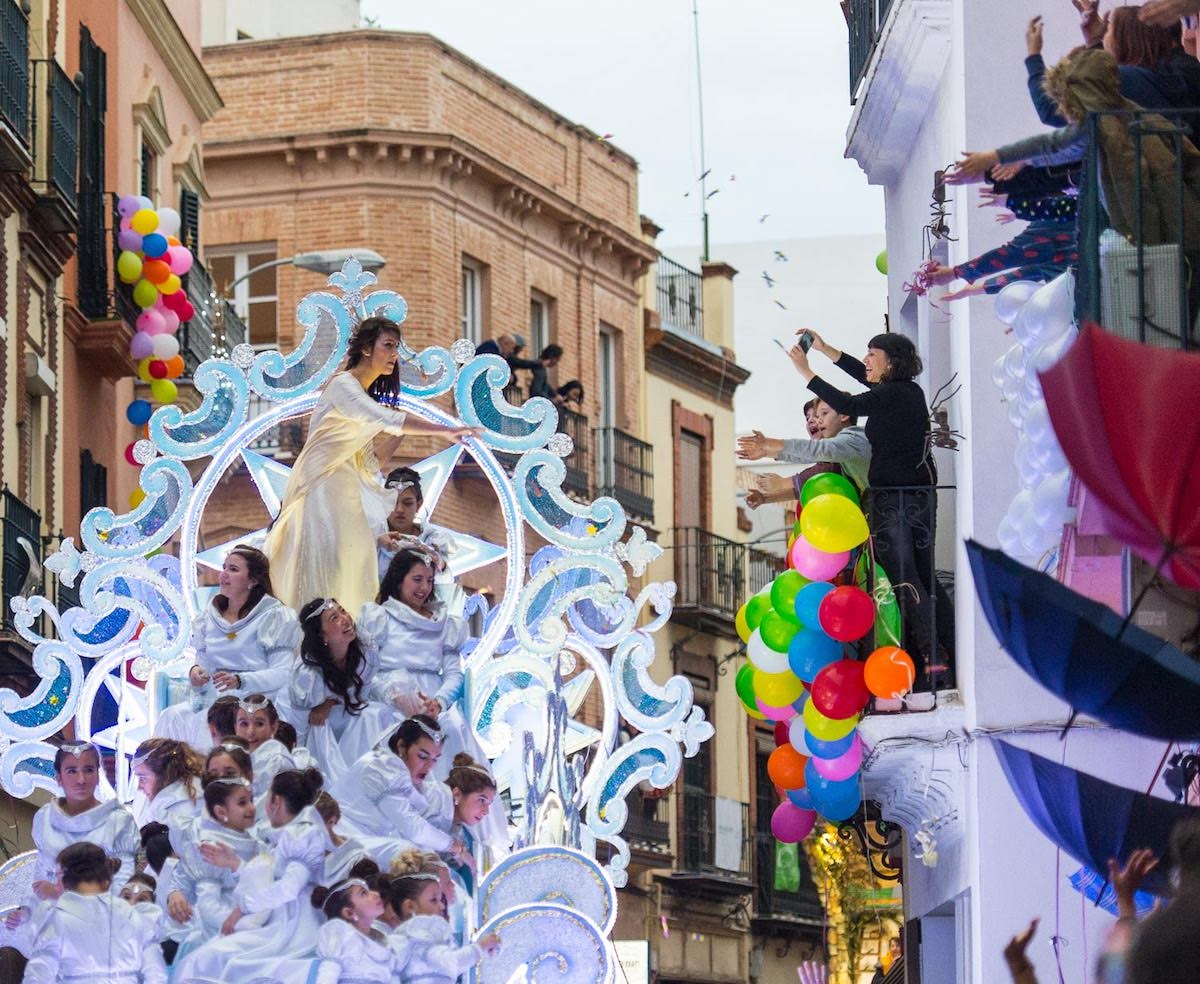
January 6: The Arrival of Los Reyes Magos
Los reyes magos traditionally bring gifts for Spanish children during the night on January 5. Much like the traditional milk and cookies for Santa Claus and his reindeer, Spanish children often set out plates of food or sweets for los reyes magos. The kings’ camels also receive dried grass or hay from the traditionalists, or milk and bread if those aren’t handy!
When kids throughout Spain wake up on the morning of the 6th, they find gifts from the Three Kings ready to open. But only if they’ve been good—just like Santa Claus, los reyes magos bring coal for those on the naughty list!
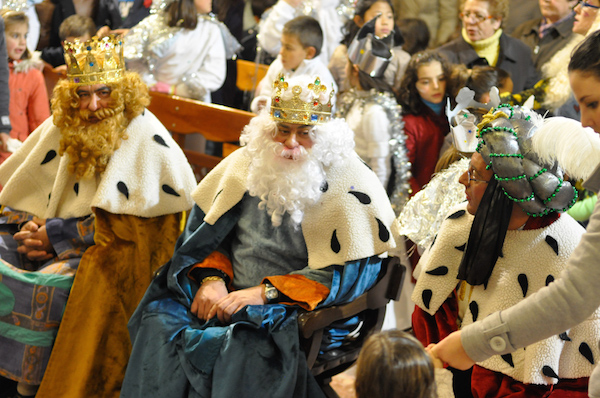
Traditional Food for Three Kings Day in Spain
Spanish families enjoy multiple feasts that last for hours throughout the holiday season. Three Kings Day is no different. After opening the gifts from los reyes magos, it’s time to enjoy an elaborate lunch of multiple courses and plenty of post-meal chatter, known as sobremesa.
A typical Three Kings Day lunch in Spain will likely start with appetizers such as cheese and cured meats. The main course can vary depending on where you are in the country, but expect something hearty and filling, usually meat or seafood-based. Just be sure to save room for dessert: the almighty roscón.
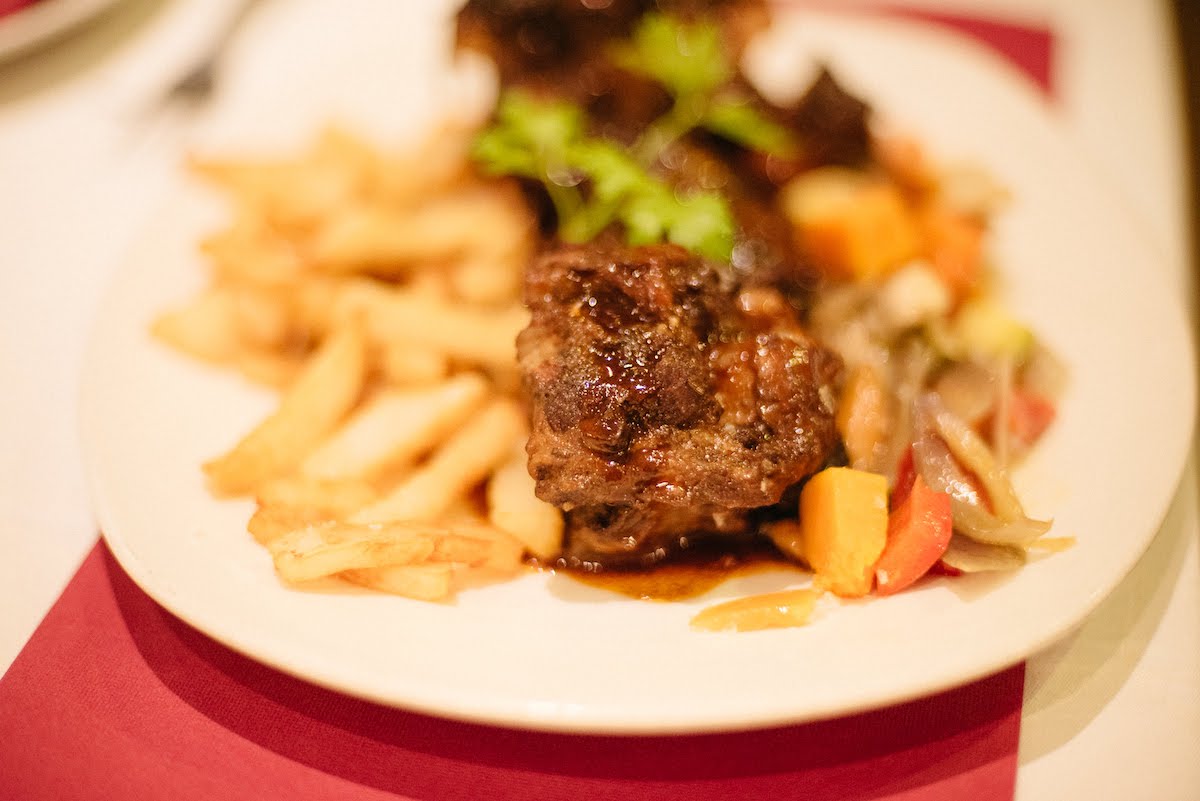
Roscón de Reyes: Three Kings Day Cake
The crown jewel of the los reyes magos celebration is exactly that: a crown-shaped dessert decorated with candy “jewels.” This is the roscón de reyes, a sweet bread-like cake often filled with cream and topped with dried fruits.
The roscón de reyes is notoriously difficult to make at home and takes a long time to prepare. As a result, most people outsource theirs to the experts. Starting in the fall, bakeries throughout Spain see thousands of orders for roscones from locals eager to reserve theirs in time.
As for when to eat the roscón, that depends on who you ask. Some families dig into theirs as soon as they get home from the Three Kings Day parade on January 5. Others have it for breakfast on the morning of the 6th, and still others hold off until the afternoon on Three Kings Day to have it for merienda, or the midday snack around 6 p.m.
Inside a Roscón de Reyes
Roscones can come in several different varieties, all of them delicious. Some are plain and come without any filling. Others contain fresh whipped cream, chocolate truffle cream, or even candied spaghetti squash (it’s better than it sounds!).
In addition, you’ll find two plastic-wrapped figurines inside the roscón: a dried fava bean and a small king-shaped figurine.
- Whoever gets the slice of the cake with the small king is the “king” or “queen” of the banquet. As a result, this person will have good luck for the rest of the year. Many roscones come with a paper or cardboard crown for this person to wear.
- On the other hand, whoever finds the fava bean has to pay for the roscón the next year!
If you happen to be in Spain around Three Kings Day, don’t miss the roscón de reyes. Many bakeries and pastry shops will offer it; check your local bakery to see what’s on offer
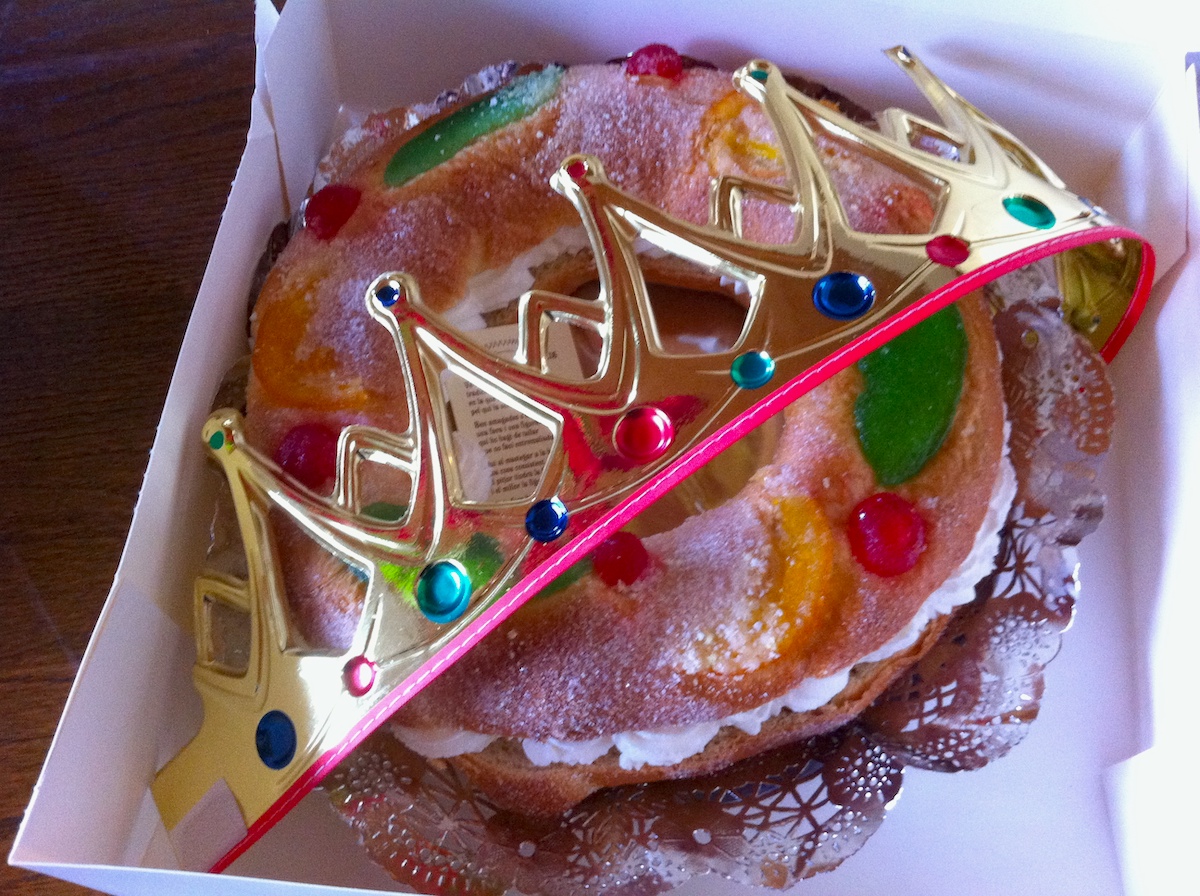
FAQs About Los Reyes Magos
How is Los Reyes Magos elebrated in different cities?
From Madrid’s Cabalgata to local festivities, each city adds its unique flavor to the celebrations. January 5th is typically marked by grand parades and gift-giving ceremonies to welcome the Three Kings.
What traditional foods are eaten on January 6th?
Families enjoy roscón de reyes, a sweet bread often shared after exchanging gifts.
Why is Los Reyes Magos important for Spanish families?
It’s a cherished tradition that combines religious significance with family bonding.
Update notice: This blog post was updated on December 26, 2024.
Want to experience Spain’s magical traditions and vibrant culture for yourself? Join one of our expertly curated tours to uncover the best of Spain’s food, history, and culture. Explore our tours and make your trip unforgettable!






Great overview. Thanks for sharing! Hope The Three Kings bring you everything you would wish for yourself
Thanks Steve! Happy Holidays from Madrid!
You too Steve!!!! Happy holidays!
-Chuy
happy holidays
Best day ever
Happy holidays, Jonny! Hope you had a wonderful Three Kings Day!
Happy Holidays hope you got everything you wished for this year!!
Thanks so much, Caylin! Happy holidays to you as well!
thanks steve you sound like a real swell guy
Yo mis vacaciones favoritas son las navidades. Celebro la Navidad estando con mi familia
A nosotros también nos encantan las navidades!
do you know what they arrived on
My favourite Roscon de Reyes is the Cream ‘Nata’ one. I can’t wait, just a few days to go til the Barcelona cabalgata.
Mmm I know, I love the Cabalgata! But I think my favorite filling is trufa, yum!
what animals did the three kings arrive with
The elephant, camel, and a mule
what is a mule
Good job sir! You really know your facts on Three Kings Day and its history!
elephant, camel, mule
the three kings arrived by camel! Luv the website! <3
i love spain rascons my favorite is rasberry
That looks fun
<3 Mmmmm
The food looks great
that was good!!!!!!!!!!!!!!!!!!!!!!!!!
cool
I love to eat trufa its amazing…
what foods are you supposed to eat other than the cake
the food lookes amazing i want it! the three kings are awesome
Why do the children leave out shoes? How did that tradition begin? I asked a friend of mine who is Spanish; she had no idea.
So the wise men know who to give the presents to.
Th food looks fabulous
This is a really good article very informational because I am learning about the three kings at school.
same
Cuando mis hermanos y yo perdemos los dientes, los colocamos debajo de la almohada para que el hada de los dientes los tome, al igual que los niños que dejan fuera los zapatos.
Kaip idomu!
Ačiū!
is this italian
Spanish
I love gifts!
Why did they give the gifts to Jesus?
Amazing! just what i needed for my Spanish assignment!
Hola come esta? Spain anyone?